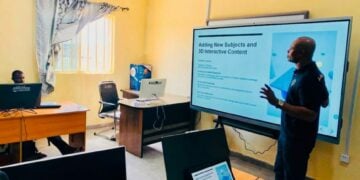The recent decision by the government to impose an 18-year age restriction on students taking the National Examinations Council (NECO) and West African Examinations Council (WAEC) examinations has sparked widespread outrage among parents and other stakeholders.
It would be recalled that the minister of education, Prof. Tahir Mamman, on Sunday, said the federal government had instructed WAEC, which administers the West African Senior School Certificate Examination (WASSCE) and NECO, which organises the Senior School Certificate Examination (SSCE) to comply with the directive on 18 years age limit for any candidate to be eligible for the two examinations.
Mamman also insisted that the age limit for any candidate to write the Unified Tertiary Matriculation Examination (UTME) organised by the Joint Admissions and Matriculation Board (JAMB) remained 18 years.
“It is 18 (years). What we did at the meeting with JAMB (in July) was to allow this year. This is to serve as a kind of notice for parents that this year, JAMB will admit students below that age, but from next year, JAMB will insist that anybody applying to university in Nigeria meets the required age of 18.
“For the avoidance of doubt, this is not a new policy; this is a policy that has been there for a long time.
“Even if you compute the number of years pupils and learners are supposed to be in school, the number you will end up with is 17 and a half – from early child care to primary school to junior secondary school and then senior secondary school. You will end up with 17 and a half by the time they are ready for admission.
“So, we are not coming up with a new policy contrary to what some people are saying; we are just simply reminding people of what exists.
“In any case, NECO and WAEC, henceforth, will not be allowing underage children to write their examinations. In other words, if somebody has not spent the requisite years in that particular level of study, WAEC and NECO will not allow them to write the examination.”
However, some parents and education stakeholders have rejected the policy, saying it will undermine students’ academic progress and limit their future opportunities.
They expressed frustration and concern that the new regulation is unfair and disruptive, saying it will penalise students who are ready to advance their education but may not fit the age criteria.
A parent who resides in Lugbe, Abuja, John Akaa, also weighed in, emphasising the potential drawbacks of the policy.
“The policy overlooks the diverse educational needs and circumstances of students. “Restricting access based on age rather than readiness and performance could hinder the academic progress of many young Nigerians.”
On his part, an educationist, Collins Agatha, said the age matter should be applicable to JAMB, not WAEC and NECO.
“It will affect the academic future of our children. If the government wants to go ahead with the person, let them start at the entry level, not when the children are already in senior classes.”





